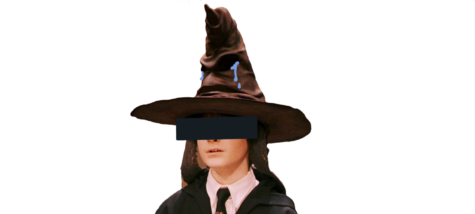OPINION | Killing Harry Potter
December 1, 2021

Death of the Author is a literary theory which argues that an author’s intentions cease to matter the moment their work is published — nothing about the author’s personal life matters when analyzing their writing. Essentially, the author is dead to the work.
Separating the art from the artist is not a new concept — most music and movies can be consumed without learning the first thing about their creators — it can be difficult to accomplish. Generally, entertainment media does not require a behind-the-scenes analysis to be enjoyed. It can simply be consumed, in the same way fast food can be eaten without ever meeting the person who cooked it.
But there are times where the artist or creator is impossible to ignore, or so closely and consistently involved with their work that separation becomes difficult. J.K. Rowling, for example, is near inseparable from the Harry Potter franchise. Unfortunately, Rowling is also inseparable from her astoundingly transphobic remarks.
This makes consumption of Potter-based media difficult, particularly for those of us who are not transphobic. Can Death of the Author be applied to Harry Potter, when its author is both alive and actively engaged in political discourse?
On one hand, the Potterverse is Rowling’s art —which is clearly widely loved — but Harry Potter never insinuated that transgender people weren’t valid. J.K. Rowling, on the other hand, has frequently posted anti-trans rhetoric which was particularly popular with trans-exclusionary radical feminists. By depicting trans people and feminists as opposing forces, both in her work and public discourse, Rowling has alienated herself from a substantial portion of her more progressive readership.
Death of the Author does not account for the author directly interacting with their audience, particularly via social media — which allows authors to interact with enormous audiences. That said, how does a trans person or ally consume this franchise when doing so lines the pockets of a celebrity transphobe?
The easy answer is that they do not. Boycotts aren’t incredibly difficult, particularly for the consumer. Allies can simply choose not to buy Rowling’s 900-page novel about a trans-coded serial killer, for example. The Harry Potter novels can be purchased second hand, or never purchased at all. If one does not like the media, or its creator, they do not have to consume it.
That concept itself is simple, but Rowling is already a very successful author. Before Rowling gained a reputation for her transphobia, over 500 million copies of the Harry Potter books have been sold worldwide, in 80 different languages.
This makes Rowling’s body of work a valuable property, and the Potterverse is still expanding. Due to concerns about Rowling’s behavior, Warner Brothers assured fans that the upcoming Hogwarts video game has no direct involvement with Rowling herself. It simply exists in the fictional world that she created. Formal efforts to distance themselves from Rowling imply that the public backlash Rowling faced had consequences, despite her celebrity status.
Hogwarts, formerly a comfortable fantasy, cannot be separated from Rowling or her rhetoric. For better — or more likely, worse — her name will never be removed from the Potter novels. Creatively, the separation between Warner Brothers and Rowling may foreshadow increasing degrees of separation between Rowling and Harry Potter. However, readers should note that such separation is creative and not financial. Rowling will not stop receiving royalties from the expanding universe of the Potter franchise.
Barring a sudden repentance by Rowling, it is time to leave the Wizarding World of Harry Potter behind.






















JKR • Dec 2, 2021 at 9:15 am
Live laugh love Harry Potter sorry ur letting a woman who’s telling u women’s rights are important hurt ur identity which is totally not fragile or based on stereotypes